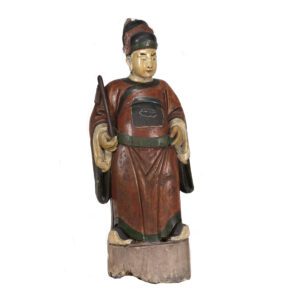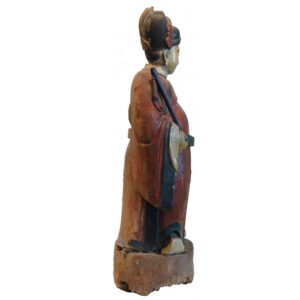Antique Chinese Immortal Lu Dongbin, China, (16009)
Original price was: $4,800.00.$3,750.00Current price is: $3,750.00.H: 32″ W: 9″ D: 8″ | CALL 213-568-3030 OR EMAIL [email protected] FOR SHIPPING
Lu Donghin, most celebrated of 8 Taoist Chinese Immortals, rides on clouds with a 2-edged sword to cut through greed, lust, sorrow. Venerated in temples, grottoes, sacred mountains, he is associated with medicine, elixir of life and power over evil spirits. This 18th large figure with cloud design on chest.


